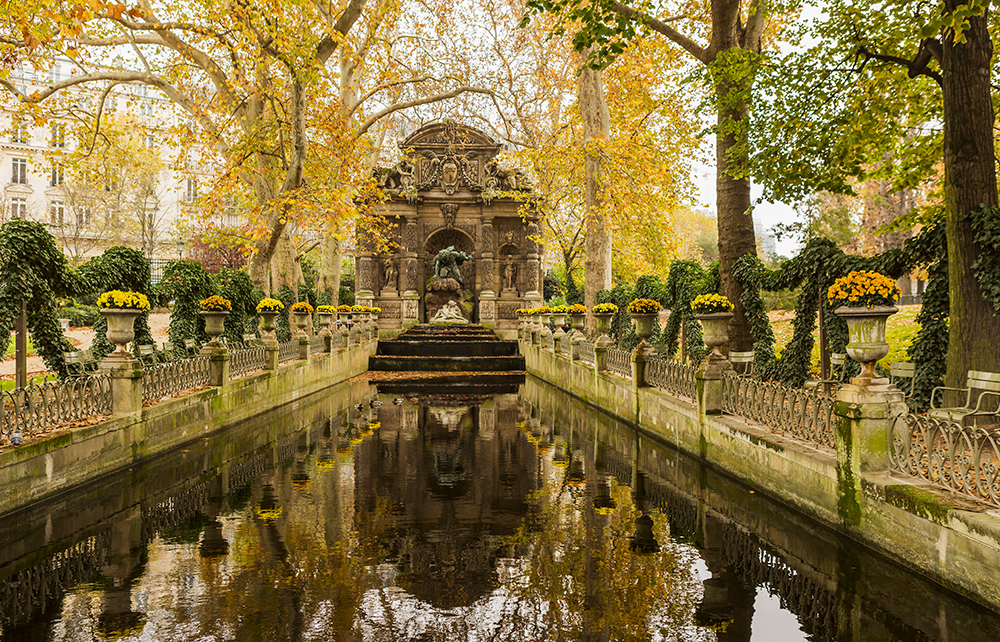In this odd book, the Financial Times columnist Simon Kuper narrates his experience as an expatriate ‘uptight northern European’ living in Paris with his family. His American wife, Pamela Duckerman, also a journalist, is the author of Bringing Up Bébé, a culture-shock memoir about having children in Paris and discovering French child-rearing ways, which are often radically at odds with American ideas and habits. Impossible City touches on some of the same territory (Kuper’s French acculturation through his children’s schooling and socialising), but it aims at a more comprehensive portrayal of rapidly evolving 21st-century Paris, warts and all; or, as he puts it, in a phrase that some may find a little crude, running the gamut ‘from croissants to terrorists’.
Bus garages, municipal dumps and anything unsightly are shoved into the netherworld of the suburbs
Kuper tackles first the ‘French sacralisation of Paris’, a city whose grand 19th-century ‘stage set’, designed by Baron Haussmann at the behest of Napoleon III, has been strenuously preserved through architectural conservation, maintenance and ‘the shoving of cemeteries, bus garages, municipal dumps and anything else unsightly into the netherworld of the suburbs’. This stage-set capital is, Kuper observes, ruled by a complicated etiquette made especially impenetrable to newcomers because it remains, by and large, tacit. Countless non-dits (things that are left unsaid) will only be clarified through trial and error. As a result, beneath the surface Parisians are often ‘charlatans’ who merely perform their Parisian identity by imitating others while working things out as they go along.
Kuper is right to note that Paris is full of people originating from the suburbs, provincial France and foreign lands who are keen to faire leur trou (‘make their own hole’ or find their place in society) and become Parisian by absorbing the city’s cultural ways. This has been the case for a long time. But while Kuper expresses his enjoyment of good food and beauty, he also evokes the cabin-fever atmosphere of a cramped metropolis where ‘Parisians spend their lives trying to have private conversations in cafés while sitting six inches from the next table, trying to keep their toilet visits and orgasms silent, and managing the neighbours’. This is no cosy Emily in Paris fantasy; rather, it is an account shot through with anxiety. More than once Kafka’s name is summoned in relation to encounters with the French administration. When seeking out French naturalisation at the prefecture of police, Kuper is sent, ‘in defiance of geography’, to a lonely room marked Asia-Oceania.
However, the principal focus of the author’s anxiety is power – namely the workings of the Parisian elites. In his 2022 book Chums: How a Tiny Caste of Tories Took Over The UK, Kuper identified a political clique of his Oxford contemporaries as being responsible for Brexit. Turning his lens on Paris, he evinces much fascination for the deft ways in which the clubbable French ruling classes preserve their endogamous enclaves of power. Kuper is forever seeking ‘the next layer of the onion’ – an out-of-the-way, high-powered restaurant, an über-exclusive dining society.
There are also some indications that the author, who notes mournfully that in moving to Paris he goes from speaking ‘a high-status form of English to a low-status form of French’, is not entirely immune to snobbery, noting with relish that with all the trappings of the Parisian elite, Macron remains in the eyes of some French people ‘a jumped-up little banker’. There is palpable relief when Kuper, along with friends, founds his own select Parisian supper club, international in flavour, where they enjoy ‘some pretty good evenings, like the time the Latin America-based journalist went home with the Syrian refugee’.
According to the right, Kuper notes, France is ‘a jihadi hellhole’; according to the left, it’s ‘a multicultural paradise’. In fact, he concludes somewhat cursorily, Paris is both those things in different places at different times. He paints a chilling picture of being there at the time of the Charlie Hebdo and Bataclan massacres, but does not delve too deeply into the (admittedly complex) causes of those events, possibly because of a form of cognitive dissonance. His principal thesis is that the city that was for so long the ‘Navel of the World’, seeing herself overtaken by other capitals, has been forced to evolve and get with the times, becoming more globalised and more multicultural.
It is also the case that Impossible City simply does not have the space to explore fully all the facets of Parisian life that get a mention: the gilets jaunes uprising, the recent reckoning with the darker aspects of the sexual revolution of May ’68, the often alienated (and evolving) relationship between Paris and the fast growing banlieues that surround it. Instead, the book, though ambitious in its scope, spins so many plates that in the end one is more impressed by its precarious balancing act than by its insights.







Comments